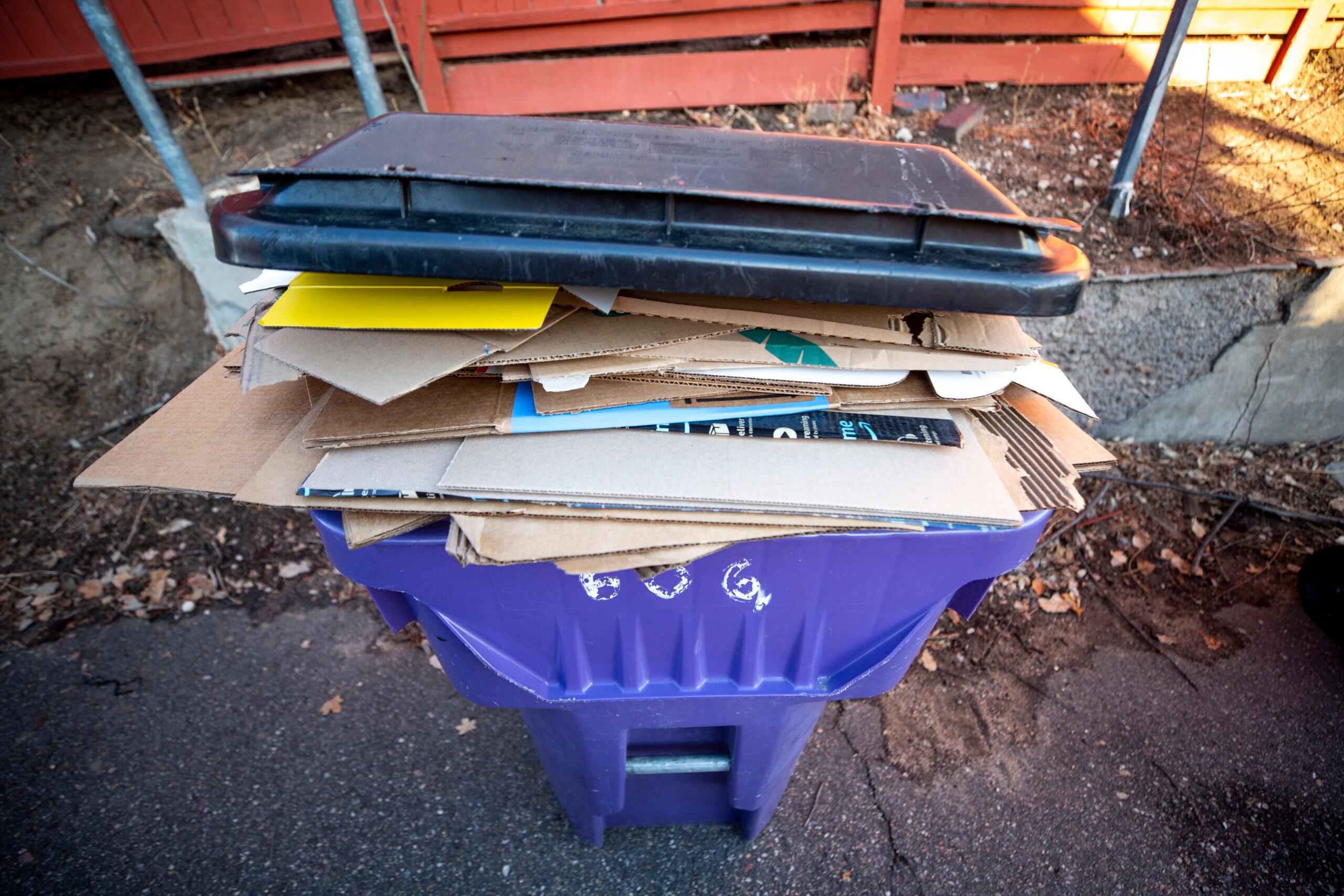By Miguel Otárola
Months after the city of Denver announced it would increase the frequency of recycling and compost pickup for homeowners next year, voters are being asked whether to require other businesses and property owners to offer similar services at apartment complexes, office buildings, food trucks, permitted events and more.
The ordinance was introduced last year by the Waste No More campaign led in part by environmental justice activist and mayoral candidate Ean Thomas Tafoya.
"We've seen for years the residents of these apartment buildings and these condos have wanted to do this, and it's challenging to do one building at a time," Tafoya told CPR News.
If Denver Initiated Ordinance 306 is approved, it would be a major expansion of recycling and composting efforts in a state struggling to do both. State law bars the city from collecting compost and recycling at large apartment buildings and commercial properties, so management companies and businesses would have to offer bins, sign private contracts with haulers and provide tenants with clear instructions on how to sort and toss their waste.
"We hope that long-term, people may choose products that ultimately can be more cycled or composted more easily," Tafoya said.
Here's the language you'll see on the ballot:
Shall the voters of the City and County of Denver adopt a measure requiring multifamily residential premises, non-residential premises, and food waste producers to offer recycling and/or organic material diversion, while also providing, in English and Spanish, proper education, information, signage, and instructions, while also providing an annual diversion plan, and notice of contract termination and change of provider, having multifamily residential premises phased in based on their number of units beginning June 1, 2022; and having non-residential premises and food waste producers, to be determined through rules and regulations established by the Department of Transportation and Infrastructure (DOTI), phased in based off their square footage beginning June 1, 2023; while also requiring retail food mobile license holders to offer recycling and organic material diversion and to be prohibited from improper disposal of fats, oils, or grease; while also requiring special events to offer recycling and organic material diversion, in convenient and appropriate containers and locations, while allowing for waivers, and requiring a waste management plan with staff and volunteer training; while also requiring construction and demolition activities to separate and recycle all readily-recyclable concrete, asphalt, clean wood, scrap metal and corrugated cardboard, and to submit a recycling and reuse plan; and requiring DOTI to establish rules granting right of entry, exemptions, and fines and penalties for noncompliance?
How would it work?
Apartments, condos and businesses that deal with food would have to offer both recycling and composting. Those that don't work with food, such as construction sites, would only have to provide recycling. Denver's Department of Transportation and Infrastructure would require composting and recycling services in larger buildings first, though Tafoya said the enforcement dates could be different from the ones included in the ballot language.
Apartment buildings with 75 or more units and commercial buildings with more than 25,000 square feet would be required to offer composting and recycling services first, followed by apartment buildings with 25 or more units and commercial buildings with more than 5,000 square feet, and, lastly, by apartment buildings with eight or more units and smaller commercial buildings.
The requirements would also apply to supermarkets, hospitals, shopping centers, food trucks, restaurants and other businesses or events that serve food. Construction and demolition sites larger than 500 square feet would have to recycle concrete, asphalt, clean wood, scrap metal and corrugated cardboard. Contractors who don't could lose their licenses, according to the ordinance's language.
Denver's Department of Transportation and Infrastructure would enforce the requirements, handle exemption requests and issue penalties for violators.
Who's for it?
The Waste No More campaign website lists several organizations and businesses centered on sustainability, including Eco-Cycle, Compost Colorado and Perks Deconstruction.
"We believe Waste No More will transform Denver's waste system by providing every Denverite access to recycling and composting, no matter where they live, work, or play," Eco-Cycle campaigns coordinator Ryan Call said in a statement.
The 1,982 members of the Colorado Restaurant Association in Denver "appreciate the overarching goals of the initiative" but are neutral on the ordinance, said Denise Mickelsen, the association's communications director.
Who's against it?
The Colorado Association of Home Builders, whose CEO Ted Leighty said the requirement would lead to higher home costs and more work for crews. Builders say there are no recycling facilities in Colorado that process the items listed in the ordinance, said Leighty, who added that transporting those items to out-of-state recyclers would add hauling costs.
Drew Hamrick, head of government affairs for the Colorado Apartment Association, said requiring apartment complexes to pay for collecting compost the same year the city removes a composting fee for homeowners would be "bad public policy." Yet he said that apartment and condo residents are widely supportive of recycling and composting programs.














